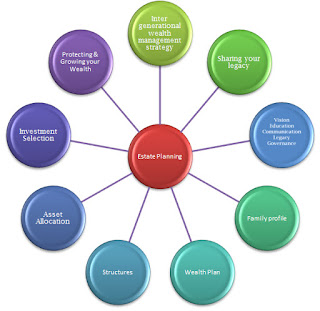Women Share Experiences On Exclusive Breastfeeding
By Chioma Umeha
Mrs. Chinedu Chukwuma, from Agwu in Enugu State,
is a happy woman. One needs no fortune teller to understand the source of
happiness of the 20-year-old mother. The healthy look of her two children tells
it all. You could see the bond between Chinedu and her three-month-old baby,
Ebelechukwu, as she cuddles her, all thanks to exclusive breastfeeding.
The World Health Organisation (WHO) explains,
“Exclusive breastfeeding means that the infant receives only breast milk. No
other liquids or solids are given – not even water – with the exception of oral
rehydration solution, or drops/syrups of vitamins, minerals or medicines.”
For Chinedu, exclusive breastfeeding is not a new
practice. She has done it before and had seen the benefits. She did not need
any persuasion to adopt it for Eberechukwu, her second child. Apart from
immunisation, she has had no reason to be shuttling between hospital and home
unlike some mothers.
Chinedu told Independent during an investigative
visit to Enugu that she came to know about exclusive breastfeeding while
attending antenatal classes for her first baby. “We were told that it is a very
good practice. I also did it for my first baby for six months and even this
baby; I will also do it for him,” she said.
WHO recommends that infants should be exclusively
breastfed for the first six months of life to achieve optimal growth,
development and health. Thereafter, to meet their evolving nutritional
requirements, infants should receive nutritionally adequate and safe
complementary foods, while continuing to breastfeed for up to two years or
beyond.
To promote the exercise, the Federal Government
integrated education on exclusive breastfeeding into the antenatal programmes
at the Primary Health Care(PHC) Centres for nursing mothers to be taught about
its benefit.
Only recently Federal Government pledged its
commitment towards supporting breastfeeding and improving funding to scale-up
nutrition and breastfeeding practices across the country.
Mrs. Aisha Muhammadu Buhari, wife of the
President, disclosed this in Abuja, during the Launch of 2016 Lancet Series on
Breastfeeding and High – level Policy Dialogue on Promoting Breastfeeding for
National Development in Nigeria.
Mrs. Buhari, represented by the wife of Niger
State governor, Dr. Amina Abubakar Bello, informed that Federal Government
would prioritise breastfeeding as part of the efforts to roll out the National
Strategic plan of Action for Nutrition.
Ngozi Onuora, a Nutritionist at UNICEF at the Port
Harcourt office of the United Nations Children’s Fund (UNICEF), Nigeria,
addressing journalists recently at media training on child nutrition, said that
exclusive breastfeeding reduces infant mortality.
Onuora explained that this is due to the
protection it gives the baby against common childhood illnesses such as
diarrhoea or pneumonia, and helps for quicker recovery during illness.
She said: “Good nutrition is the bedrock of child
survival, health and development. According to her, well-nourished children are
better able to grow, learn, participate in and contribute to their communities.
It also makes them resilient in the face of disease, disaster and other
crisis.”
Mrs. Igbe Assumpta, a 26-year-old mother also
attested to the benefits of practising exclusive breastfeeding. Though a
student, she got the first information about exclusive breastfeeding from her
elder sister who told her how beneficial it is before she started antenatal.
Igbe said, “Exclusive breastfeeding boosts my
baby’s intelligent quotient, as she is very sharp. Even my friends who are not
doing exclusive breastfeeding used to tell me that my baby is very sharp. My
baby is also strong and healthy.
“Since I gave birth to her, I haven’t taken her to
the hospital. It saves me money. My baby is five months and two weeks and I
will complete the six months exercise. I will still practise it for my next
baby. I also advise other women to go for exclusive breastfeeding.”
As for Celestina Nwankwo, a 35-years-old farmer
and mother of six children, the difference between her children who were
exclusively breastfed and those who were not is clear.
She told Independent, “I have done it for two of
my children and I saw the difference. They don’t fall ill often; they do not go
to toilet anyhow. My advice to mothers is that they should try and adopt
exclusive breastfeeding because it is very good.
“I did not do exclusive breastfeeding for all my
children. There is a big difference between those who benefitted from it and
others who did not. The ones that were exclusively breastfed are very
intelligent and are closer to me,” Celestina said.
The 35-years-old farmer also said she heard about
it in the Health Centre during antenatal.
According to Mrs. Monica Igbofunanya, the
Education Officer at Primary Health Centre (PHC) Agwu Local Government of Enugu
State, the main challenge facing nursing mothers in the area is the mother-
in-laws who try to persuade their daughter-in-laws to give pap or water to the
children.
She said, “The major challenge is mother-in-laws
who insist on feeding the baby with other foods and water after they have been
delivered. I call most of them during their ANC period to counsel them with
their husbands.”
To enable mothers to establish and sustain
exclusive breastfeeding for six months, WHO and UNICEF recommend initiation of
exclusive breastfeeding within the first hour of life, that is, the infant
receives breast milk without any additional food or drink, not even water.
WHO further recommends that breastfeeding should
be done on demand and that is as often as the child wants, day and night, and
bars the use of bottles, teats or pacifiers.
However, despite how important and beneficial
exclusive breastfeeding is, many women do not adopt it. WHO report has it that
currently, less than 40 per cent of infants who are less than six months of age
are exclusively breastfed worldwide. Many women go for artificial breast milk
thereby leaving many children without necessary protection in their early
stages of life.
Experts are worried given the Nigerian situation
where many families hardly have enough to eat, not to talk of buying sufficient
milk for their newborn babies.
Some women, out of ignorance or a show of
affluence, introduce artificial breast milk to their babies within the first
six months. Many of them claim that breast milk alone cannot satisfy their
babies.
Sadly, some health workers even encourage mothers
to give their babies artificial milk soon after delivery. In some hospitals
where artificial milk is forbidden for new born babies, some health workers
secretly help the mothers feed their babies with artificial milk.
Again, some mothers and mothers-in-law make things
difficult for their daughters and daughters-in-law who want to breastfeed their
babies exclusively. They still regale in the old tradition that new born babies
must be fed with water which they believe the baby needs most to be alive.
Refusal to abide by such tradition often results to misunderstanding.
Meanwhile, some working class women, out of
circumstances, are forced not to breastfeed their babies exclusively for the
recommended six months.
Some organisations, especially private ones, give
six weeks maternity leave and do not allow the women to come to work with their
new born babies. Many organisations do not have crèche for new born babies,
thereby forcing them to either stop breastfeeding abruptly or combining breast
milk with artificial milk.
Corroborating earlier views, Dr. Chris Osa Isokpunwu
of the Federal Ministry of Health, Abuja, told journalists during a two-day
Media Dialogue on Leveraging Resources for Child Malnutrition in Nigeria that
exclusive breastfeeding for six months prevents childhood illnesses like
diarrhoea, infection
He said that exclusive breastfeeding prevents
childhood obesity and the associated non- communicable diseases in adulthood,
adding that the mother only needs to be adequately fed on normal family diet.
Isokpunwu revealed that “it is cheaper when
compared to what is spent on baby formula, hospital bills, energy cost of
boiling water and sterilisation of bottles, cups and spoons, and above all, the
consequences of non-communicable diseases like diabetes, hypertension,
cardiovascular diseases later in life.”
To curb child malnutrition, WHO recommends
exclusive breastfeeding of infants for six months as the breast milk contains
all the nutritional value a child needs for proper growth and continuous
breastfeeding and adequate complementary foods until 24 months.
The basic drivers of malnutrition are poverty,
failure in governance, institutional weaknesses, gender issues, the underlying
causes are food insecurity, inadequate care, access to health care services,
while the immediate causes of malnutrition are; inappropriate food intake and
diseases.
With Nigeria currently recording a huge number of
malnourished children, the Gross Domestic Product (GDP) might just be affected
years from now as malnutrition accounts for low Intelligent Quotient (IQ) of an
individual.
Every single day in Nigeria, malnutrition accounts
for 2,300 under-five deaths and 145 women of child bearing age and this makes
the country the second largest contributor to the under-five and maternal
mortality rate in the world.
United Nations Children’s Fund (UNICEF) data said
annually, up to one million children die before the age of five in Nigeria, 50
per cent of the cause is undernutrition, and 26 per cent are neonatal deaths
and figures by World Bank suggests that Nigeria loses over US$1.5 billion in
GDP annually to vitamin and mineral deficiencies alone.
Also a survey by UNICEF indicates that
malnutrition does not just make the child stunted, wasted, it also prevents the
child from achieving his potential and children who are malnourished in their
first two years of life lose 11cm of potential height.




Comments
Post a Comment